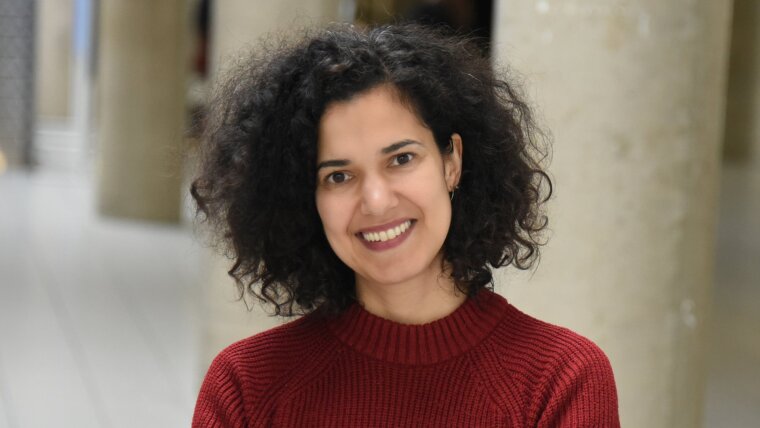
Published: | By: Stephan Laudien
Source article
In the operating theatre, every move should be perfect, procedures must be right, teamwork is required. But what happens if the team makes a mistake, possibly jeopardising the life and limb of the patient? "The exciting question is how teams react to unexpected incidents, how they deal with disruptions in the process," says Prof. Dr Mona Weiß. Born in Berlin in 1984, she is the new Professor of Occupational Psychology at Friedrich Schiller University Jena. Her research focuses on employee voice, the question of whether employees point out mistakes to their superiors and whether the latter take their employees' comments, criticisms and opinions seriously and, in the best case, demand them. "We know from social psychology that people who are subordinate in a group hierarchy tend to keep their criticism to themselves for fear of negative consequences," says Mona Weiß. In operating theatre teams, however, it is precisely this failure to address problems and mistakes that can have fatal consequences. The aim of her research is therefore to decode the team's communication, to see who leads, whether the tasks are clearly distributed and which mechanisms take effect when something threatens to go wrong.
The goal is better communication within the team
"The WHO's Surgical Safety Checklist is now standard in many clinical departments, which aims in particular to improve communication and coordination within the team," says Mona Weiß. The training of Medicine staff also increasingly includes simulations, comparable to flight simulations in pilot training, in which critical events are trained. For the occupational psychologist, the focus is on finding solutions to improve teamwork. "Sometimes it helps if managers explicitly encourage the team to ask questions or address problems," says Prof. Weiß. This is particularly relevant in the hospital context, as strong hierarchies still characterise cooperation here. Another approach is to reflect on experiences from past teamwork. After all, it is the performance of the entire team that ultimately decides the well-being of patients.
Those who feel younger than they are can achieve more
Another exciting research field for Mona Weiß is the topic of age and ageing in the world of work: "We have found that the so-called perceived age in particular is very significant in the work context - sometimes more significant than a person's actual age." This means, for example, that older people who feel younger than their actual age are often more motivated at work and want to work longer. This is where managers and organisations could take targeted action to better exploit the potential of older employees and not deny them skills based on negative images of their age. Many older people would also like to have a regular job, even after retirement. "Utilising the potential of older people is of course particularly relevant in the context of demographic change, be it in the workplace, but also in clubs, sports groups, churches and communities," says Weiß.
A spirit of optimism still prevails in the East
Mona Weiß studied Psychology in Halle (Saale) and completed her studies in Erlangen/Nuremberg. In between, she spent a study period of guest studies in Brisbane, Australia. Her interest in people, her curiosity about human motives and behaviour and her interest in Medicine led her to Psychology. Both complemented each other perfectly at ETH Zurich, where she wrote her doctoral thesis entitled "Speaking up for Patient Safety: Antecedents and Consequences of Voice in Healthcare Teams" in cooperation with the University Hospital Zurich. Mona Weiß worked as a postdoc at New York University for several years before being appointed junior professor at the FU Berlin.
Now the decision for Jena. One reason is the spirit of optimism that can still be felt in the East. She was also immediately impressed by the way people interact with each other at the Institute of Psychology; an impression that had already become apparent during the application process. Her students can benefit from this and she wants to pass on her enthusiasm for the subject to them. The mother of two young children lives with her family in Leipzig, but thinks Jena is great. The Saale reminds her of Halle and the mountains bring back memories of Switzerland, says Mona Weiß. Ideal conditions for her leisure activities of running, cycling and photography.